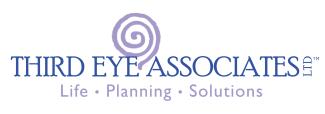Social Security―When to start taking benefits
February 20, 2014
By Beth Jones, RLP®, AIF®, CFT™
Whether or not you believe Social Security will be around when you need it, proper planning compels you to calculate when it makes the most sense to start your benefits. Many people believe that once they hit age 62, they should immediately begin receiving social security benefits. Others have been advised to wait as long as possible before drawing distributions. This has become an even more difficult situation given the market conditions of the last few years, which may have damaged other retirement savings. Actually, there is no one right answer but, there is a right answer for you.
LIFE EXPECTANCY AND INCOME NEEDS Depending on your health, life expectancy, retirement goals, and sources of income, you may want to receive social security benefits beginning at your early retirement age (62), your full retirement age (between 65 and 67), or even age 70. Because there is no mandatory age to begin taking benefits, determining when to start receiving social security is a critical component of retirement planning. The two most important factors in making this decision are (1) your life expectancy and (2) what you plan to do with your social security income.
If you need to spend your entire social security check every month and think that you may not live past age 70, you may want to begin drawing on social security at the earliest possible date. Be aware, however, that cashing in early permanently diminishes your payout rate, while the longer you defer receiving social security payments—up to a certain point—the bigger the monthly check will be. Waiting to full retirement age, which ranges from 65 to 67 depending on the year of your birth, ensures that you will receive a greater monthly benefit, while delaying until age 70 ensures that you will receive the maximum possible benefit. There is no benefit to waiting past age 70.
For that very reason, if you believe that you will live well into your 80s, it might make sense to wait until a later date to begin receiving benefits. On the other hand, if you plan to invest your social security income, it pays to begin taking distributions at the earliest possible date. If invested wisely, your modest social security checks could grow into a substantial sum.
LEVERAGING SOCIAL SECURITY FOR OTHER NEEDS Another way to invest your payments if you don’t need them for regular income is to purchase insurance with your excess social security payments. This approach may be beneficial for individuals who lack long-term care insurance and believe that they will require assisted living, full-time aid, or a nursing home sometime in the future. Used this way, your social security checks could save you thousands of dollars, helping to protect your assets and ensure quality medical services.
WHEN ARE SOCIAL SECURITY BENEFITS TAXABLE? 1 If you receive Social Security benefits, you need to know whether or not these benefits are taxable. Here are seven facts the Internal Revenue Service wants you to know about Social Security benefits so you can determine whether or not they are taxable to you.
1– How much – if any – of your Social Security benefits are taxable depends on your total income and marital status.
2– Generally, if Social Security benefits were your only income for 2009, your benefits are not taxable and you probably do not need to file a federal income tax return.
3– If you received income from other sources, your benefits will not be taxed unless your modified adjusted gross income is more than the base amount for your filing status.
4– Your taxable benefits and modified adjusted gross income are figured on a worksheet in the Form 1040A or Form 1040 instruction booklet.
5– You can do the following quick computation to determine whether your benefits may be taxable:
- First, add one-half of the total Social Security benefits you received to all your other income, including any tax exempt interest and other exclusions from income.
- Then, compare this total to the base amount for your filing status. If the total is more than your base amount, some of your benefits may be taxable.
6– The 2012 base amounts are:
- $32,000 for married couples filing jointly.
- $25,000 for single, head of household, qualifying widow/widower with a dependent child, or married individuals filing separately who did not live with their spouses at any time during the year.
- $0 for married persons filing separately who lived together during the year.
7– For additional information on the taxability of Social Security benefits, see IRS Publication 915, Social Security and Equivalent Railroad Retirement Benefits, available at IRS.gov. 1 Source: IRS.gov
The Social Security Administration website, www.ssa.gov, is a valuable resource to help determine when you should begin taking distributions; you may find the table of payout reductions at www.ssa.gov/retire2/agereduction.htm particularly interesting. As you know, many people are working well past the typical retirement age, regardless of their income needs. This may prove an option even if you could readily take your social security benefits early.
As you plan for retirement, it is wise to consult with a trusted Financial Planner to determine when you should begin receiving social security benefits and; whether or not you should invest them, as well as to assess your income flow after the last paycheck. For today’s retirees, social security will almost definitely be able to provide a monthly distribution. The question that remains is when the payout should begin.
Third Eye Associates, Ltd disclaimer
This article is provided for general informational purposes only and should not be construed as investment advice. Always consult a qualified Financial Consultant or Planner who can guide you in creating a globally diversified portfolio that provides growth and income with an eye on managing volatility.
Beth Jones, RLP®, AIF®, CFT™ is a Certified Financial Transitionist™, Registered Life Planner, and Financial Consultant with Third Eye Associates, Ltd, a fee-only Registered Investment Adviser located at 38 Spring Lake Road in Red Hook, NY. She can be reached at 845-752-2216 or www.thirdeyeassociates.com.

